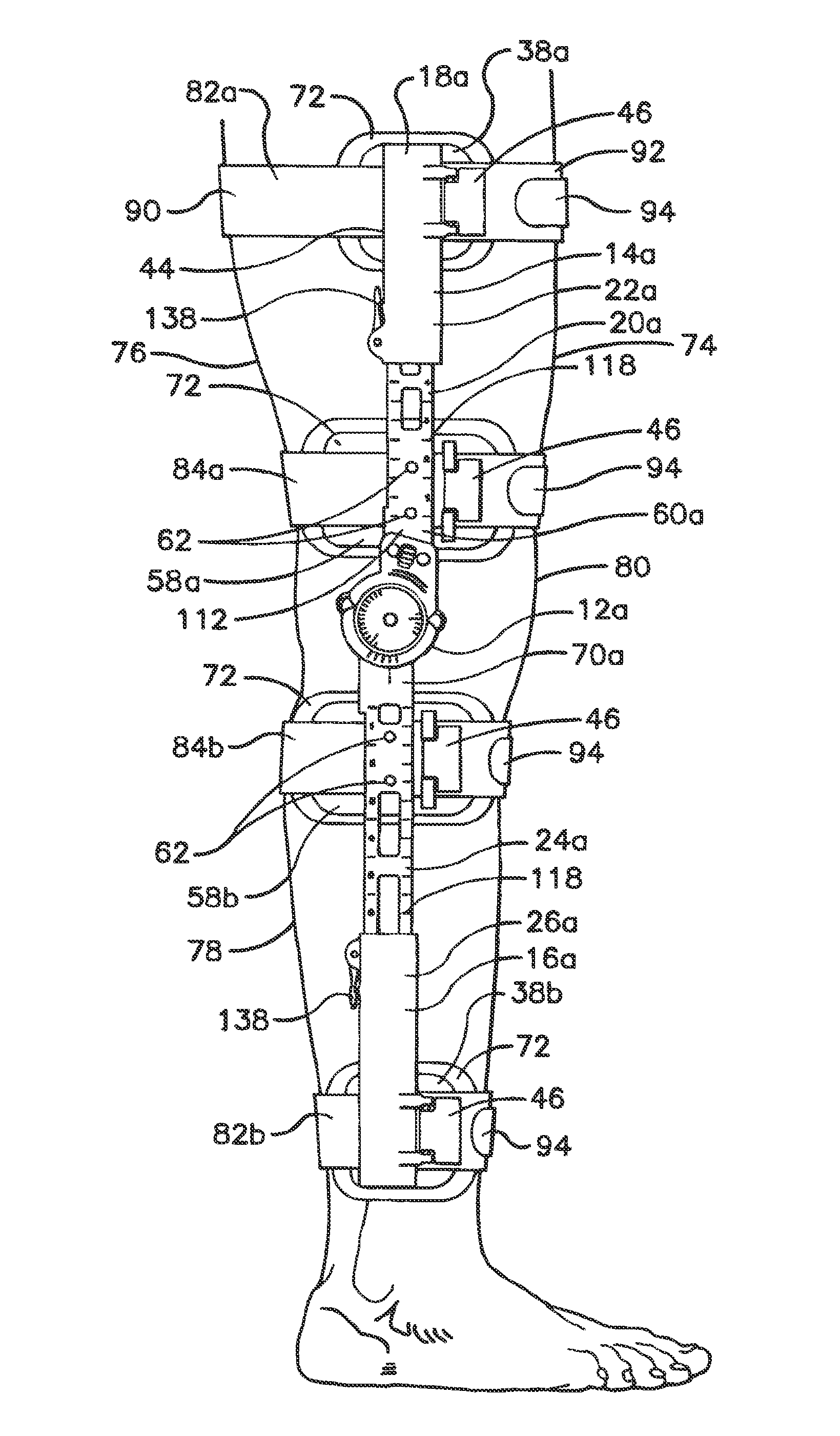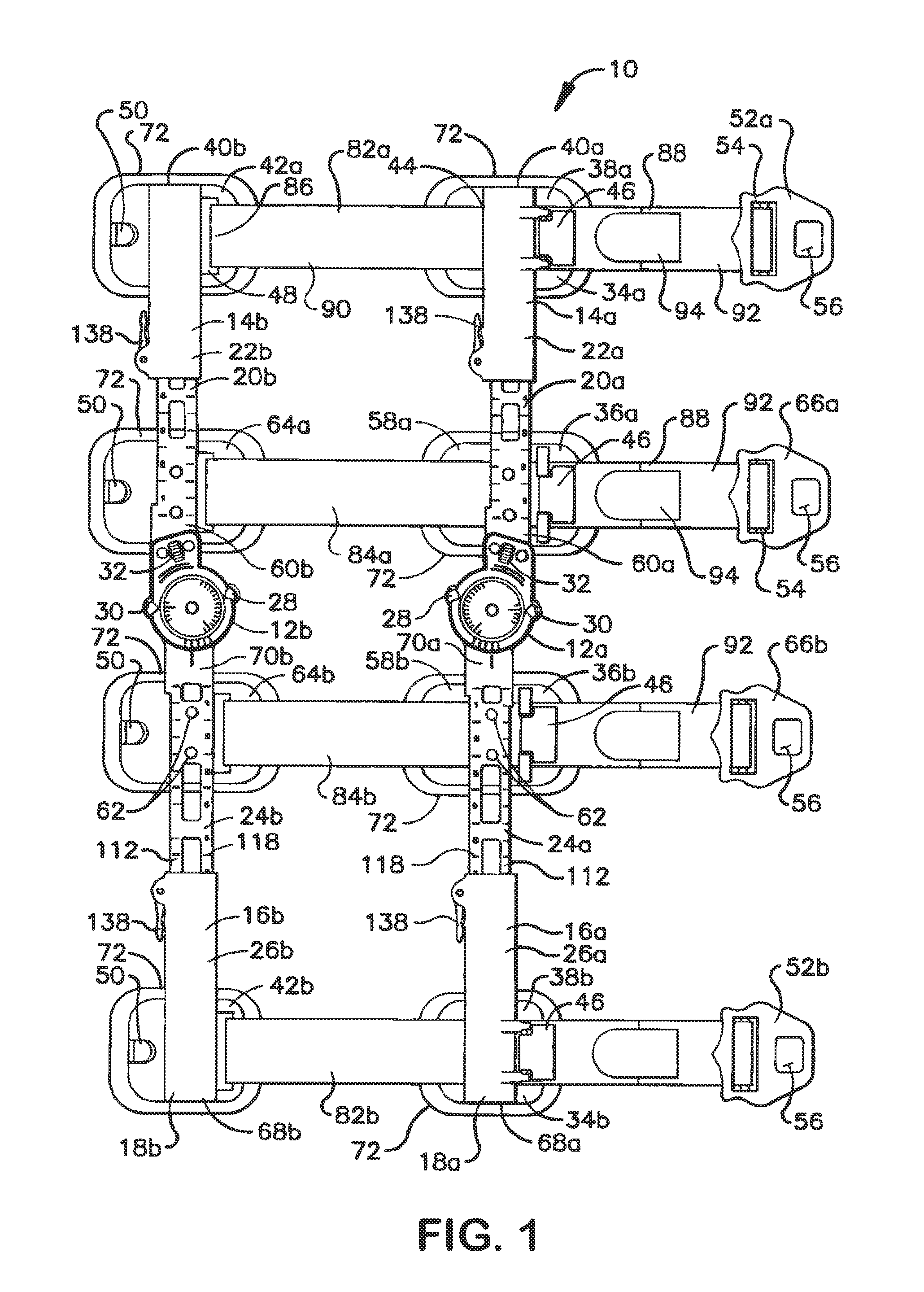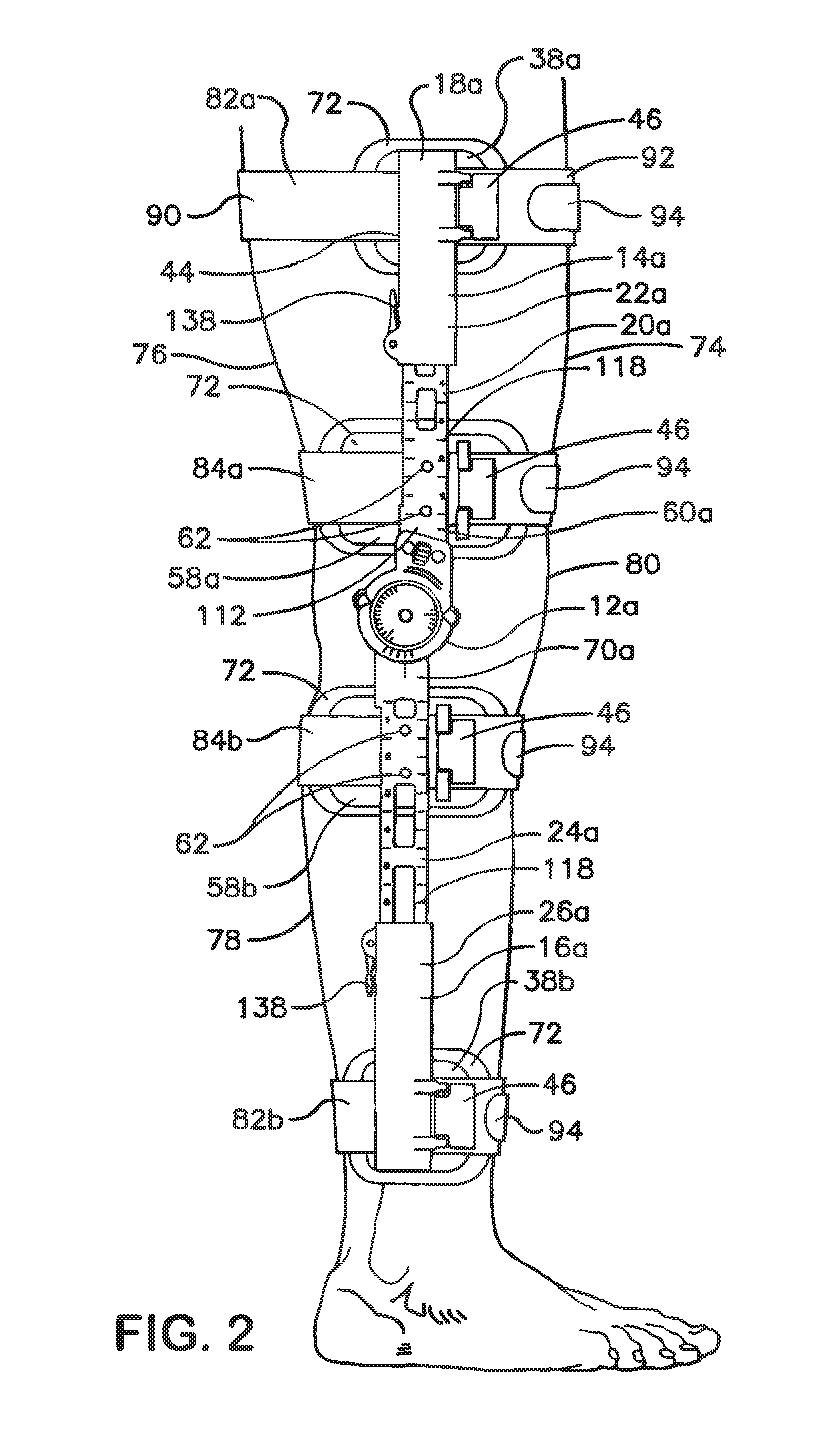Orthopedic brace having a length-adjusting mechanism and a lockable rotation hinge
a technology of length adjustment mechanism and lockable rotation hinge, which is applied in the field of orthopedic braces, can solve the problems of inherently increasing the risk of erroneously resetting the rotation limit of the hinge, the task of adjusting the rotation range of the hinge can require a significant degree of dexterity, and the screw is susceptible to being misplaced or los
- Summary
- Abstract
- Description
- Claims
- Application Information
AI Technical Summary
Benefits of technology
Problems solved by technology
Method used
Image
Examples
Embodiment Construction
[0063]Referring initially to FIG. 1, an orthopedic brace is shown and generally designated 10. There are a number of relative terms defined below which are used in the following description to distinguish various elements of the orthopedic brace 10 from one another, but which are not to be construed as limiting the scope of the invention. The relative terms “medial” and “lateral” characterize certain elements of the orthopedic brace 10 and, in particular, describe the relative proximity of the given element to the central longitudinal axis of the body of the user when the brace 10 is mounted thereon. A “medial” element is closer to the central longitudinal axis of the body, while a “lateral” element is further from the central longitudinal axis of the body.
[0064]The terms “proximal” and “distal” characterize certain elements of the brace 10, which are aligned with the longitudinal axis of the brace 10. The terms describe the relative proximity of the given element to the central joi...
PUM
 Login to View More
Login to View More Abstract
Description
Claims
Application Information
 Login to View More
Login to View More - R&D
- Intellectual Property
- Life Sciences
- Materials
- Tech Scout
- Unparalleled Data Quality
- Higher Quality Content
- 60% Fewer Hallucinations
Browse by: Latest US Patents, China's latest patents, Technical Efficacy Thesaurus, Application Domain, Technology Topic, Popular Technical Reports.
© 2025 PatSnap. All rights reserved.Legal|Privacy policy|Modern Slavery Act Transparency Statement|Sitemap|About US| Contact US: help@patsnap.com



